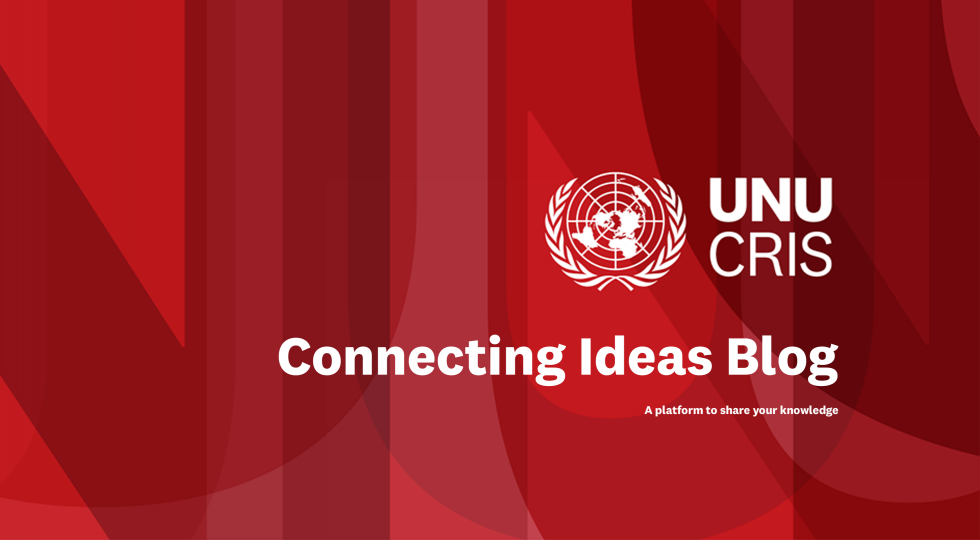The Three R’s of Research at UNU-CRIS


Director, UNU-CRIS

Policy and Communications Officer, UNU-CRIS
27 March 2023 | #23.04 | The views expressed in this post are those of the authors and may not reflect those of UNU-CRIS.
The world around us is a very different place today than it was just seven years ago. One could almost be forgiven for forgetting that fact given the whirlwind of the early 2020s, however, removing the elephant in the room that is Covid-19 and the extraordinary effect on all aspects of society it has had, the evolution, and not always in a positive sense, is clear for all to see.
In the past seven years, we have seen the tremors of a Grexit in 2015 foreshadowing the earthquake of Brexit the following year, possibly marking a tipping point of sorts from integration towards disintegration that has come to underline the movement in regional organizations since. 2018 marked the start of the dismantling of the once very promising UNASUR in South America. In the years immediately preceding the pandemic, the tone in the debates on the potential of regional (and global) cooperation had definitely changed, certainly compared to the optimism of the 1990s and early 2000s. Europe has seen what has been dubbed the worst migration crisis since World War Two, fuelling a populist backlash across the continent, born from rising nationalist sentiment and concerns over globalisation and growing inequality. Major tech companies have grown in size and power, leading to questions as to how big is too big, and how can our data be protected in a world where most live a hybrid life between the digital and physical realms. Russia’s invasion of Ukraine has had global ramifications, worsening already precarious food situations in Africa, soaring energy prices, and bringing about a “us or them” mentality scarily similar to the Cold War, driving wedges between major and minor powers. Simply put, multilateralism has come under increasing distress.
For all the doom and gloom, not all developments have been detrimental, however, as in 2015 the 2030 Agenda for Sustainable Development was adopted, giving us the 17 SDGs that are now permeating policymaking at all levels, and it was the year the Paris Climate Agreement was signed, the greatest collective agreement on climate action to date, marking a step in the right direction towards tackling the biggest existential threat humanity has ever faced. In 2018, the African Continental Free Trade Agreement was signed as an important step towards the integration of African economies and cooperation in related areas. Other regional integration schemes also made progress in their respective agendas, be it with respect to health policy or in other areas. One of the things the Covid-19 crisis has indeed shown (again) is that many interrelated policy challenges do not stop at the (national) borders and that – in those cases - citizens are served by cross-border and multilateral cooperation and policy coordination.

Thanks for the history lesson you may say, but what does this have to do with UNU-CRIS, what’s with the seven-year timeline, and where do the three R’s come into it? Our last strategic plan was devised in 2016 and, as an institute with a mission to focus “on new patterns of regional and global cooperation and governance”, these evolutions, or devolutions in some cases, over the past seven years underline the need for continued research on the why’s and how’s of regional cooperation, while at the same time providing fertile ground for exploring new lines of research, for example, related to the role of regional governance in the (just) sustainable and digital transitions. As the world around us has evolved, so have we. As the UN’s research institute on regional and global cooperation and governance, it is our task to keep on top of trends and at the forefront of research on the most pressing issues across all levels of governance and, to do so, we’re excited to introduce our new restructured and refocused research programme and a new strategic plan outlining how we will contribute to addressing these major challenges in collaboration with our partners around the globe. And so we arrive at the big reveal of the three R’s, our overarching clusters within the new research programme.

In the study of governance and cooperation, regional organizations, although under considerable strain from resurgent nationalist forces, are still necessary yet underutilised organs in tackling cross-border problems in synergy with the other governance levels. On the other end of the governance spectrum, we have also seen the growth in the agency of cities and sub-state regions, which are now becoming powerhouses on their own and interacting internationally. How these different levels of governance operate and interact is the domain of our first programme, the Regions and Cities Governance Lab (Re-LAB). It aims to explore the capacity and actorness of the governance levels beyond the nation-state, and their evolution as new actors in the international sphere, as is the case with substate regions and cities, or as actors under stress and in need of reform, in the case of regional organisations.

The second programme, the Regional Integration Knowledge System (RIKS), aims to shed light on this intricate system of international relations and, especially, its regional dimensions, by providing researchers, policymakers, and journalists with reliable information on regionalisation patterns in the global system and on the evolution of regional organizations through an open access information platform. Within RIKS, work is also conducted on advanced quantitative methods and their application to regionalism studies. Finally, it supports regional organizations and other authorities in designing indicator-based monitoring systems.

In our globalised world, the biggest challenges we face are cross-border in nature, as the Covid-19 pandemic and the fallout from the war in Ukraine has demonstrated with devastating effect. Our final and largest programme, Regional Public Goods (RPGs), encompasses several clusters and seeks to examine key policy areas such as Migration and Social Policy, Economic Interactions, Digital Governance, and Nature, Climate and Health, how the structures within these different fields are set up, how, within each of these areas, greater cooperation can lead to a greater benefit for all, and how multi-level governance can contribute to public policy effectiveness.

In a world facing so many challenges, many of them growing and becoming more urgent by the day, understanding is simply not enough. We must seek to improve and correct the paths we find ourselves on. At UNU-CRIS, through this new, clear and focused research programme, we are best set up and positioned to do our part in not just researching these key issues of governance and cooperation, but using our expertise to provide policy-relevant output that can guide the next steps in addressing these challenges, from the local council to the Security Council, Afghanistan to Zimbabwe, and the African Union to the Visegrád Group.
Collaboration is key to achieving our goals, and those outlined in the 2030 Agenda for Sustainable Development, so if this work interests you then, by all means, reach out to us or get in touch with the coordinator of the relevant programme or cluster.
Read more about our focus in the coming years in our Strategic Plan 2022-2026.
